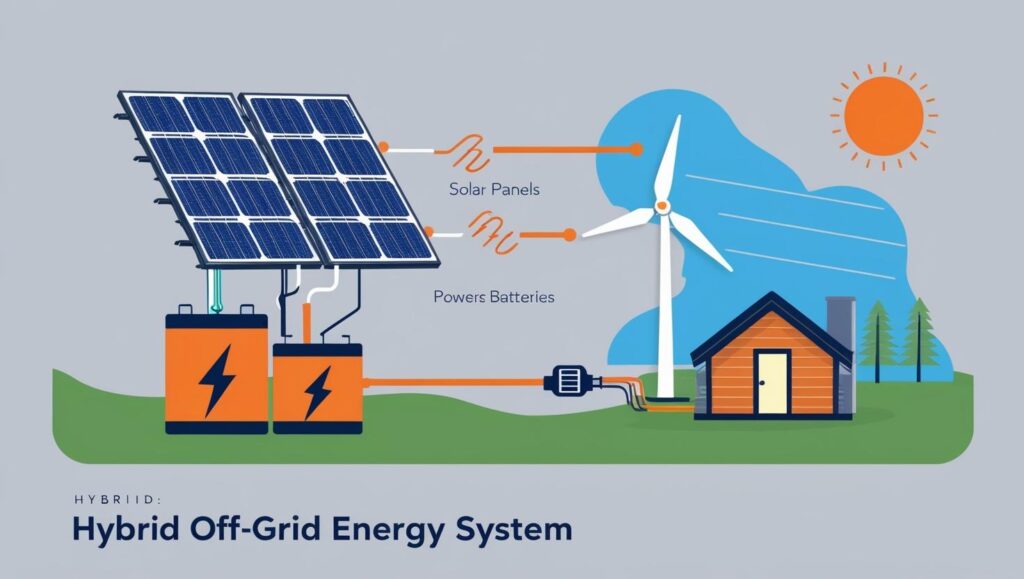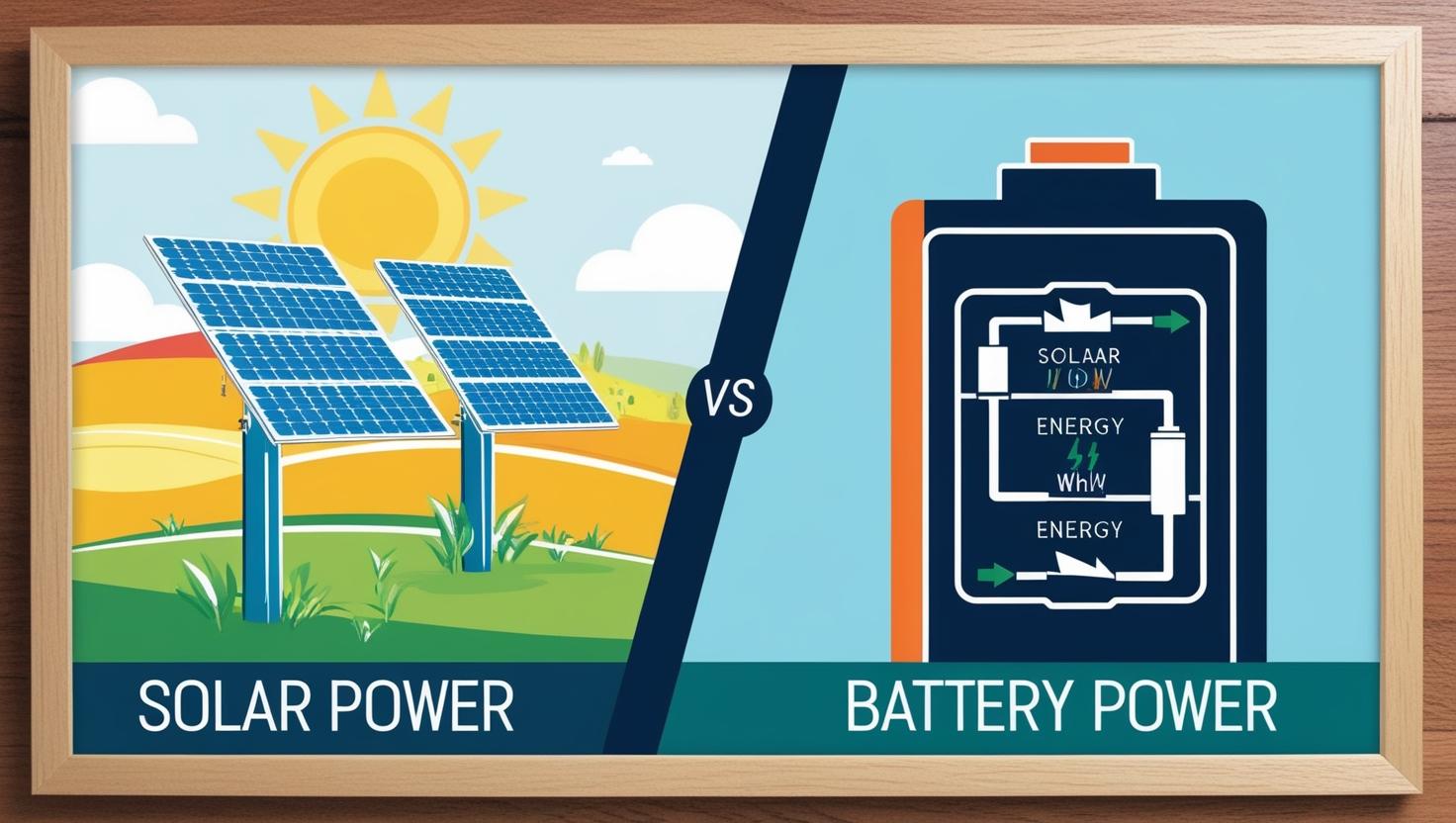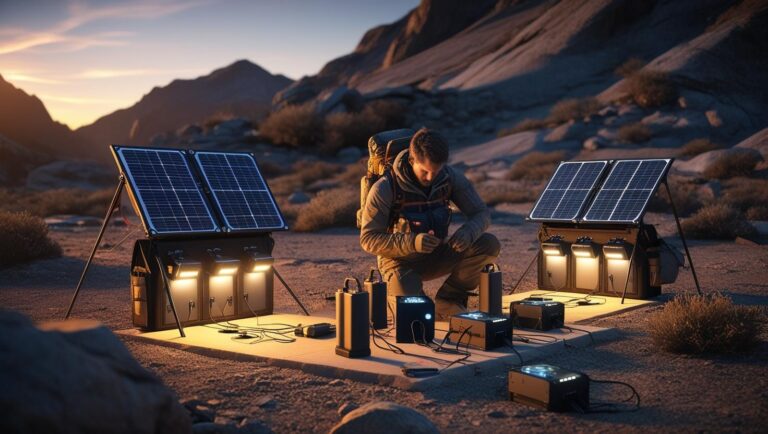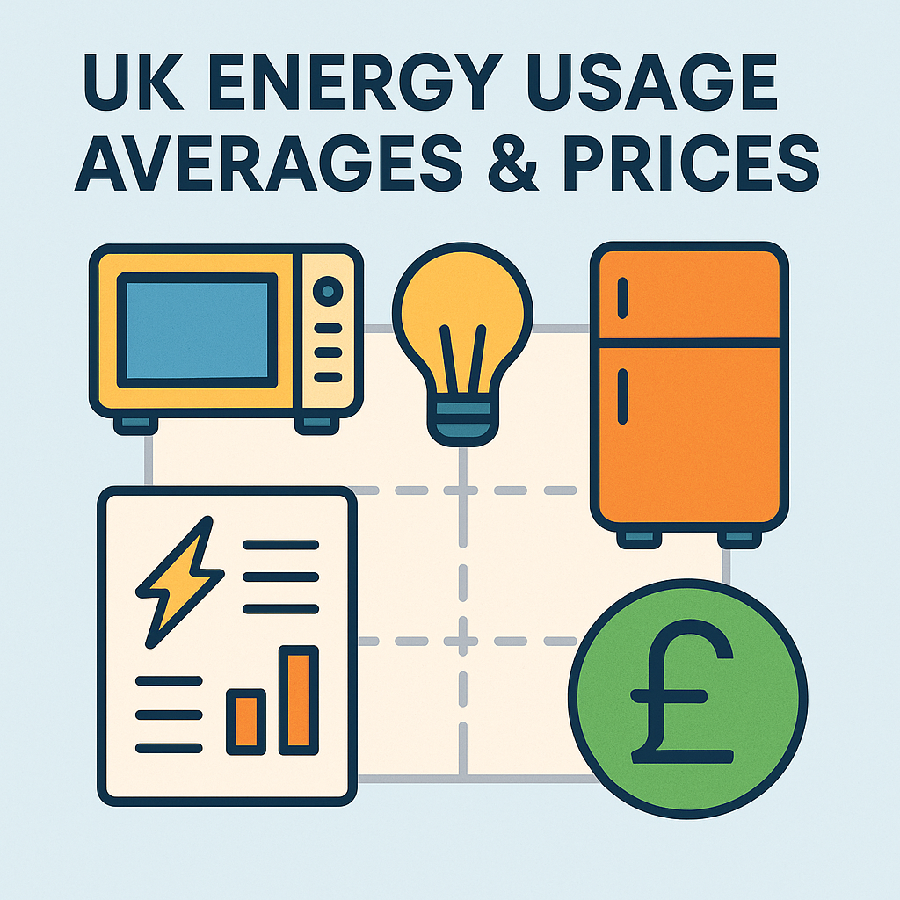Battery vs. Solar Power: Which is Better for Off-Grid Living?
The Off-Grid Power Dilemma
Picture this: You’ve found the perfect slice of tropical paradise—no power lines, no utility bills, just pure freedom. But now comes the big question:
Should you invest in a massive battery bank or cover your roof in solar panels?
The truth? Neither is a standalone solution for most off-gridders. The right choice depends on your location, energy needs, and budget.
In this guide, we’ll break down:
✔ When batteries outperform solar (and vice versa)
✔ Hybrid systems—the best of both worlds?
✔ Tropical-specific challenges (humidity, storms, sun availability)
✔ Real-world cost comparisons
By the end, you’ll know exactly where to put your money for reliable off-grid power.
(For context on solar’s evolution, see: 2005 vs. 2024 Solar Panels.)
Understanding the Players: Batteries vs. Solar
Batteries 101: Your Energy Savings Account
- Types:
- Lead-Acid (Cheap but high-maintenance)
- Lithium-Ion (Lightweight, long-lasting, $$$)
- Key Metric: kWh storage (Not volts or amps—this tells you how long they’ll last).
- Best For:
- Overnight power
- Emergency backup during cloudy days
Solar Panels 101: Your Energy Paycheck
- Types:
- Monocrystalline (Efficient, space-saving)
- Polycrystalline (Budget-friendly, less efficient)
- Key Metric: Watt-hours per day (How much energy they generate daily).
- Best For:
- Recharging batteries
- Daytime power needs
Tropic Tip: UV-resistant panels last longer in harsh sunlight.
Head-to-Head Comparison: Batteries vs. Solar
| Factor | Batteries Win When… | Solar Wins When… |
|---|---|---|
| Upfront Cost | Need power immediately (no sun wait) | Sun is abundant & consistent |
| Tropical Climate | High humidity degrades panels | UV-resistant panels thrive |
| Maintenance | Lithium-ion = low upkeep | Panels need cleaning (monsoon debris) |
| Lifespan | Lithium: 10-15 years | Panels: 25-30 years |
Key Takeaway:
- Batteries = Energy Storage (Like a savings account).
- Solar = Energy Generation (Like a paycheck).
Real-World Scenarios: Which One Fits You?
1. The Weekend Cabin
- Solution: Small battery bank (e.g., 5kWh lithium).
- Why? You only need power for lights, phone charging, and a fridge for short stays.
2. Full-Time Tropical Homestead
- Solution: Solar + Battery Hybrid (e.g., 10kWh battery + 1kW solar).
- Why? You need 24/7 power for A/C, refrigeration, and tools.
- Tropic Hack: Oversize your battery bank for monsoon season.
(For off-grid solar tips, see: Solar Power for Survivalists.)

Hybrid Systems: The Ultimate Off-Grid Solution?
Most full-time off-gridders use both—solar by day, batteries by night.
Example Setup:
- 400W Solar Panels → 10kWh Battery Bank
- Result: Energy independence, even on cloudy days.
Tropic Advantage:
- More sun = faster battery recharge.
- Batteries act as a “storm buffer” during rainy weeks.
Cost Breakdown: Where Should You Invest?
Batteries
- Lead-Acid: 200−200−500/kWh (but lasts only 3-5 years).
- Lithium-Ion: 500−500−1,000/kWh (lasts 10+ years).
Solar Panels
- Budget: 0.70−0.70−1.50 per watt (installed).
- ROI: In the tropics, solar pays for itself faster (more sun hours).
Pro Tip: Start with solar, then add batteries as your budget allows.
Maintenance & Longevity
Battery Killers
❌ Deep Discharges (Never drain lead-acid below 50%).
❌ Heat (Lithium degrades faster in hot climates—keep ventilated!).
Solar Savers
✅ 30° Tilt = Self-cleaning during rains.
✅ Corrosion-Resistant Connectors (Salt air destroys cheap parts).
(For durability tips, see: 2005 Solar Q&A.)
Final Verdict: Which Should You Choose?
Go Battery-Only If:
✔ You’re in a shaded jungle with little sun.
✔ You only need short-term backup power.
Go Solar-Only If:
✔ You’re on a tight budget and use power only by day.
✔ You’re in a sun-drenched desert with no nighttime needs.
Hybrid is Best For:
✔ 90% of off-gridders (Especially in the tropics).
✔ Those who want 24/7 power without anxiety.
Next Steps & Resources
- Calculate Your Needs: Use NREL’s Solar Calculator.
- Learn Battery Care: Battery University.
- Start Small: A 100W solar kit + small battery can test the waters.
Need More? Explore our RV Solar Hub for mobile power tips.



